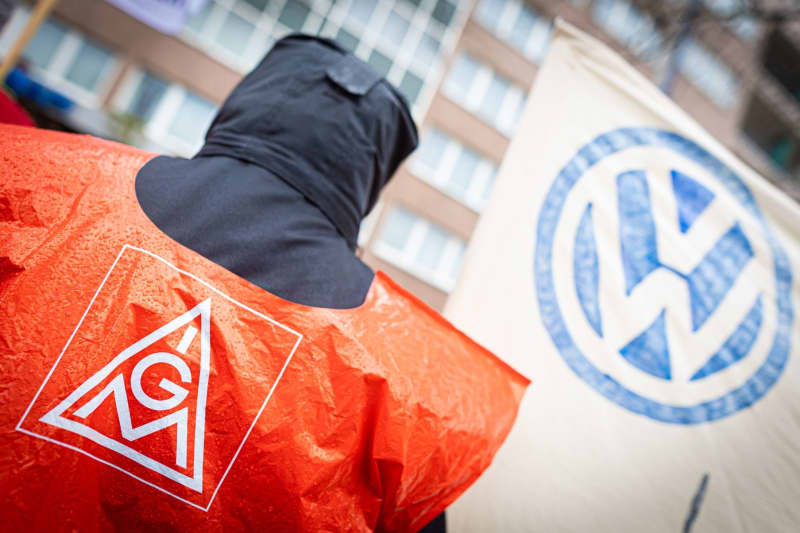Negotiations between Volkswagen (VW) and the IG Metall trade union, representing around 130,000 factory workers in Germany, resumed as both parties sought to navigate a complicated labor dispute over potential workforce cutbacks. Following an extended session of talks that lasted until after midnight, the two sides are hopeful for a resolution before the upcoming Christmas holiday. However, despite the duration of discussions, significant differences remain evident. VW management is proposing a 10% decrease in wages across its German workforce, while also warning of possible plant closures and mass layoffs. In contrast, the union has firmly rejected the idea of permanent wage reductions, advocating instead for job security assurances for all employees.
The negotiations reflect broader tensions within VW as the company grapples with its financial performance amid increasing global competition and the challenges of transitioning to electric vehicles. With VW’s labor costs viewed as a contributing factor to disappointing financial results, company executives argue for higher profit margins to sustain competitiveness. The competitive pressure is intensified by rival firms, particularly from China, where lower labor costs enable aggressive pricing strategies. As a result, VW management feels justified in pursuing austerity measures, insisting that such steps are necessary for the long-term viability of the brand and to support critical investments in technology and infrastructure.
The labor unrest sparked by these negotiations includes two one-day strikes across various VW plants in Germany, signaling a strong resolve among workers to resist management’s austerity plans. IG Metall’s leadership has issued warnings of escalating resistance if the company remains inflexible. The striking workers emphasize their discontent with potential wage cuts and uncertain job security, expressing a desire for assurances that their livelihoods will not be jeopardized. This collective action demonstrates a commitment to advocating for labor rights in light of corporate restructuring efforts and plans that would significantly alter the employment landscape in the automotive sector.
Despite the intensive negotiations, both VW and IG Metall stakeholders have characterized the talks as constructive for the first time, although they concede that no substantial progress has been made. The recognition of a more collaborative atmosphere suggests that both sides are beginning to engage more thoughtfully with one another, even while fundamental disagreements linger. The dialogue continues to be spurred by the necessity of finding common ground to ensure that the company can adapt its business model in the face of evolving market conditions while safeguarding jobs and worker rights.
VW’s management is under increased pressure to deliver results, balancing the need for cost reductions and increased investment with the imperative to maintain a stable workforce. As the automotive industry transitions toward electric vehicles, companies like VW must innovate and expand their capabilities, which necessitates significant financial resources. This strategic pivot is not only paramount for operational success but also critical for the company’s long-term sustainability in a rapidly changing market landscape. The challenge lies in executing this transformation while managing relationships with the workforce and addressing growing concerns about job security.
As the labor dispute unfolds, the outcome of these negotiations will likely have lasting implications not just for VW but also for the broader automotive industry in Germany. The commitment of both parties to finding a resolution before the holiday season underscores the urgency of the situation. While the need for competitive profitability is at the forefront of VW’s agenda, safeguarding workers’ rights remains a pivotal concern for the union. The interplay between these competing priorities will determine the future direction of the company and its ability to adapt successfully to an increasingly demanding global market while maintaining its reputation as a reliable employer in the region.

